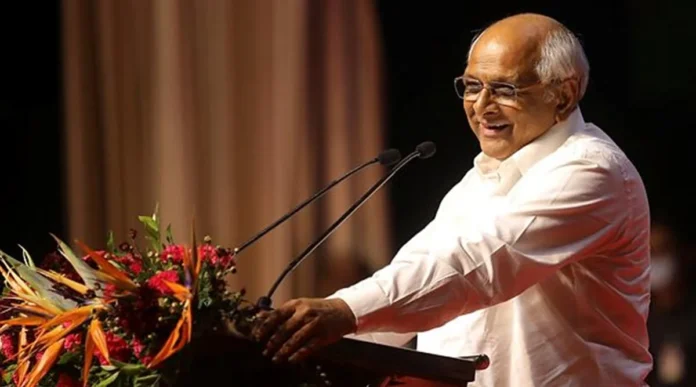Ahmedabad (Gujarat) [India], January 3: The ‘Ahmedabad International Flower Show 2025’ was officially inaugurated today at the Sabarmati Riverfront by Chief Minister Bhupendra Patel. The event was also attended by Health Minister Rishikeshbhai Patel and Minister of State for Cooperation Jagdish Vishwakarma.
Following the inauguration, the dignitaries, including Chief Minister Patel, explored the various attractions of the flower show. The flower sculptures, in particular, received widespread appreciation from all attendees.
During the event, Patel also launched the Tree Census and unveiled the Mission Three Million Tree coffee table book. Other notable attendees included Ahmedabad Mayor Pratibhaben Jain, local MLAs, municipal officials, and other key figures.
This year’s flower show beautifully blends Indian culture with the beauty of nature. The event, a celebration of both natural artistry and human craftsmanship, continues to draw nature and culture enthusiasts from all over India, offering them a memorable experience. In addition to its aesthetic appeal, the show plays a vital role in raising environmental awareness and promoting sustainability.
The flower show is a platform for citizens advocating for environmental causes, encouraging public participation in fostering a greener, eco-friendly future. It has grown into a multifaceted event, highlighting the importance of biodiversity, environmental sustainability, and cultural enrichment.
Last year, over two million people visited the show, and this year, expectations are even higher. Notably, the 2024 Flower Show earned a spot in the Guinness Book of World Records for its 400-meter-long flower wall.
The 2025 edition is divided into six thematic zones, each offering a unique display of over 10 lakh flowers, more than 50 flower species, and over 30 sculptures:
- Zone 1: Showcasing India’s growth and development through symbolic statues like elephants, lotuses, Konark Chakra, and more.
- Zone 2: Celebrating inclusivity and sustainability, featuring diverse animal sculptures such as tigers, peacocks, and Asiatic lions.
- Zone 3: Focusing on global sustainability, with themes related to climate change, global warming, and nature.
- Zone 4: Highlighting India’s rich culture and heritage, with exhibits like Brihadishwar Temple, Nandi, and Garba.
- Zone 5: The Flower Valley, featuring Hornbills and celebrating India’s natural beauty.
- Zone 6: Looking ahead to India’s promising future, with symbolic displays like the 2036 Olympic bid and Gandhiji’s three monkeys.
This year’s show also emphasizes public participation, incorporating suggestions from Prime Minister Narendra Modi’s visit last year. Corporate and government entities have become key partners, contributing to the success of the event.
An audio guide has been introduced for the first time, allowing visitors to access detailed information about flowers, sculptures, and zones by scanning QR codes. A special souvenir shop has also been set up, along with food and nursery stalls, offering a comprehensive and engaging experience for all attendees.


